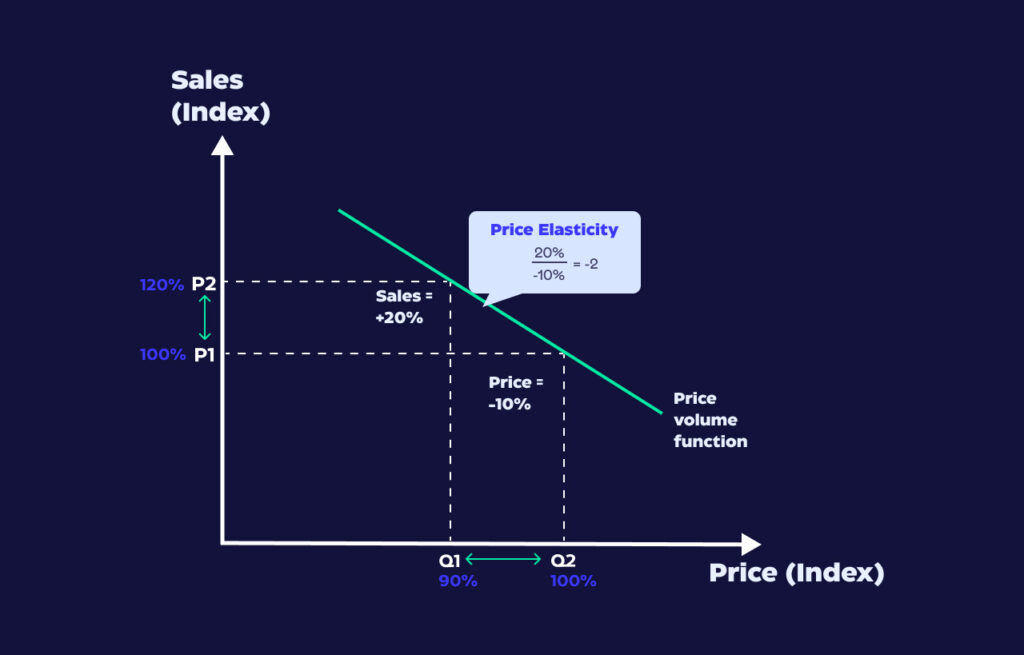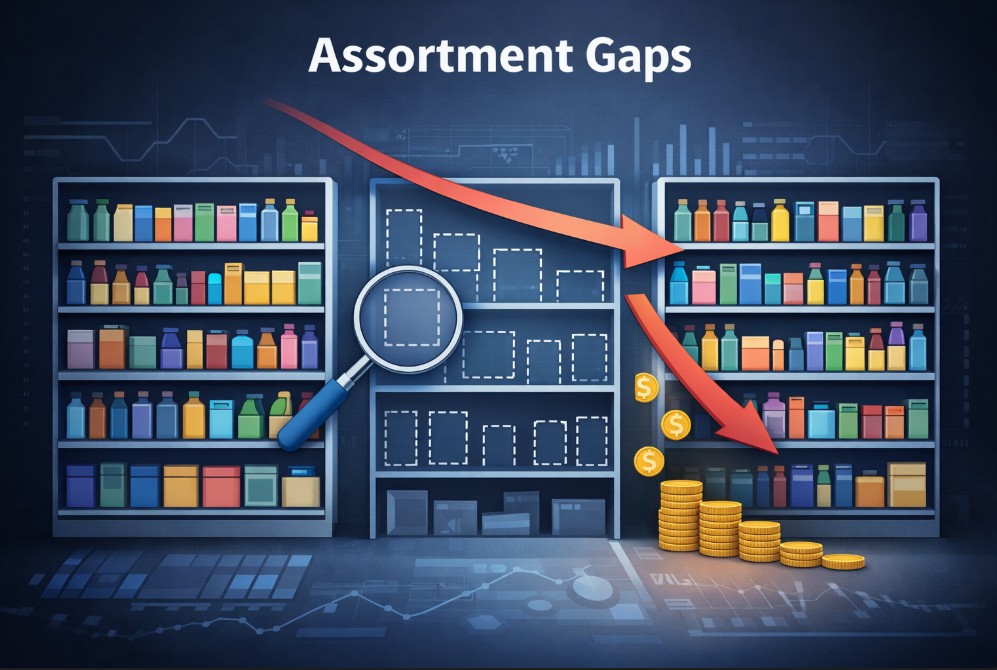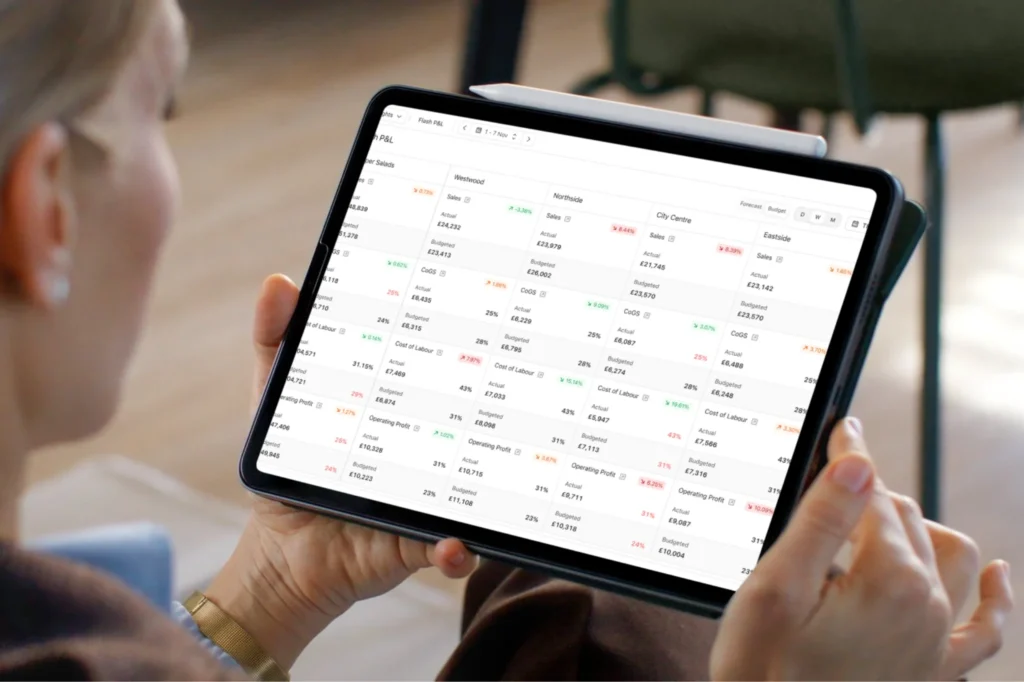- Product
- Solution for
For Your Industry
- Plans & Pricing
- About us
- Resources
For Your Industry
In today’s data-driven retail landscape, promo architecture determines more than just how much you discount; it defines how sustainable your margins are.
The balance between promotional depth, frequency, and ROI is the new frontier for pricing teams aiming to build discounts that scale without eroding profitability.
This article explores the science of promo architecture vs margin, revealing how structured discount frameworks, elasticity modeling, and pricing intelligence tools can turn promotions from reactive cost centers into strategic profit drivers.

Promo architecture refers to the structured design of a company’s discount and promotional strategy. It defines what types of promotions to use, when to deploy them, and how deeply to discount.
It encompasses all elements of promotional planning:
Discount tiers and thresholds
Offer sequencing (for example, early-season vs clearance)
Channel alignment (online vs in-store)
Product segmentation and eligibility
Communication and perceived value
A well-defined promo architecture ensures every discount is intentional, measurable, and margin-aware, rather than reactive or purely competitive.
Retailers have entered an era where promotional intensity is at historic highs. Inflation, increased price transparency, and aggressive online competition mean discounting is constant.
Without a robust promo architecture, brands risk:
Margin dilution from unstructured or overlapping promotions
Cannibalization of full-price sales
Customer desensitization to discount messaging
Operational complexity in managing inconsistent promo rules
By contrast, retailers with disciplined promo architectures achieve:
Higher campaign ROI through targeted offers
Controlled discount depth across categories
Consistent margin recovery post-promotion
Scalable, automated execution via pricing systems
Every 1% of unnecessary discount can erode up to 10–15 basis points of margin, depending on category elasticity. When promotions lack structure or alignment, three issues emerge:
| Issue | Description | Margin Impact |
|---|---|---|
| Overlapping Promotions | Two or more offers stack, creating deeper unintended discounts. | -2–5% margin loss |
| Poor Elasticity Estimation | Discount depth doesn’t align with demand sensitivity. | -1–3% margin loss |
| Uniform Discounting | Blanket promotions ignore category and product-level variation. | -3–6% margin loss |
Effective promo architecture prevents these by setting guardrails and predictive rules for promotional depth, frequency, and timing.
Designing promo architecture that scales across regions, channels, and categories requires both structure and intelligence.
tgndata’s approach combines data-driven segmentation, elasticity analytics, and automated rule governance.
Establish a clear hierarchy for discounts:
National vs Local: Centralize strategic promotions, localize tactical ones.
Category Tiers: Premium, mid-tier, and value lines should have defined elasticity ranges.
Product Roles: Identify traffic drivers, margin builders, and clearance items.
Not all discounts generate equal uplift.
Use historical data to model:
Elasticity curves by category and brand.
Incremental revenue from each past promotion.
Diminishing return points for discount depth.
This ensures your discounts respond to actual demand sensitivity, not guesswork.
Implement dynamic pricing software (like tgndata’s pricing intelligence suite) to:
Limit stackable discounts
Automate discount ceilings by SKU or category
Enforce minimum margin thresholds
Track performance KPIs in real time
Automation enables speed without losing control, ensuring promotional agility scales efficiently.
Consumers expect consistent promotional experiences across touchpoints. Align:
In-store offers with online banners and email.
Mobile app coupons with loyalty rewards.
Third-party marketplaces with your own pricing standards.
Channel harmony sustains trust and reduces the perception of “discount inflation.”
A leading fashion retailer used tgndata’s dynamic pricing and promo analytics platform to redesign its promotional cadence.
By restructuring tiers and automating ceilings:
The brand reduced average discount depth by 12%.
Maintained sell-through at 98% of prior campaigns.
Achieved a 7% uplift in margin recovery within one quarter.
Data-driven promo architecture doesn’t just optimize performance; it redefines the relationship between price perception and brand equity.
To sustain long-term profitability, promotions should be measured on value created, not discount given.
Key KPIs include:
| Metric | Description | Target |
|---|---|---|
| Promo ROI | Incremental margin / discount investment | >1.5x |
| Elasticity Fit Score | Predicted vs actual uplift accuracy | >80% |
| Incremental Sell-through | Percentage of added units sold via promotion | +5–10% |
| Post-Promo Retention | Repeat purchase after campaign | +3–5% |
These KPIs ensure promo architecture is scientifically validated, not just financially reactive.
Promo architecture is most powerful when directly tied to margin optimization engines.
With modern pricing analytics, teams can:
Forecast margin impact before launch
Simulate multiple promo structures
Identify “safe discount zones” per product
Reallocate budgets to high-performing promo formats
This closes the loop between strategy (promo design) and execution (real-time pricing).
Artificial intelligence enables promo architecture to scale intelligently.
Using machine learning, pricing teams can:
Detect cross-category elasticities
Predict optimal discount cadence
Anticipate competitor reactions
Recommend personalized discounts to maximize ROI
When powered by tgndata’s automated data pipelines, AI turns promo architecture into a living system that continuously learns, optimizes, and protects margins at scale.
Even advanced retailers fall into these traps:
Short-term sales bias – prioritizing immediate lift over profitability.
Channel inconsistency – different teams running uncoordinated discounts.
Under-measured outcomes – focusing on top-line revenue, ignoring margin impact.
Elasticity lag – using outdated elasticity models that ignore market volatility.
Avoiding these pitfalls requires real-time monitoring and feedback loops, which tgndata’s analytics infrastructure provides natively.
Tomorrow’s promo architecture will no longer be about “percent off.” It will be about profit elasticity.
Retailers will:
Dynamically adjust promo frequency based on margin signals
Use AI to simulate full campaign outcomes before execution
Integrate promotions into unified revenue optimization ecosystems
Discounting will become a precision tool, not a blunt instrument, and margins will finally scale sustainably.
Promo architecture is no longer just a marketing tool; it is a strategic profit discipline.
Retailers who balance promo creativity with margin intelligence build promotions that scale sustainably, protect profitability, and enhance customer trust.
By combining structured promo frameworks, elasticity insights, and automation, pricing teams can ensure every campaign drives measurable business value and long-term growth.
Explore more from the tgndata blog:
For ongoing insights into promo architecture, margin optimization, and pricing automation, subscribe to the tgndata newsletter for expert updates delivered monthly.







We use cookies to provide you with an optimal experience, for marketing and statistical purposes only with your consent, which you may revoke at any time. Please refer to our Privacy Policy for more information.






Missing an important marketplace?
Send us your request to add it!